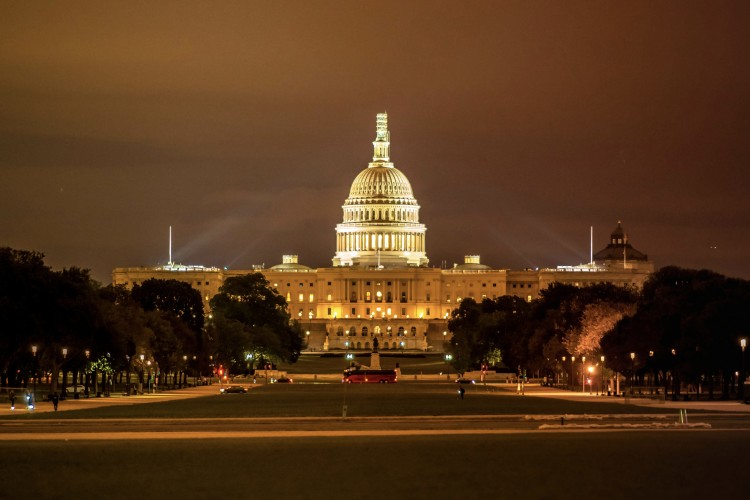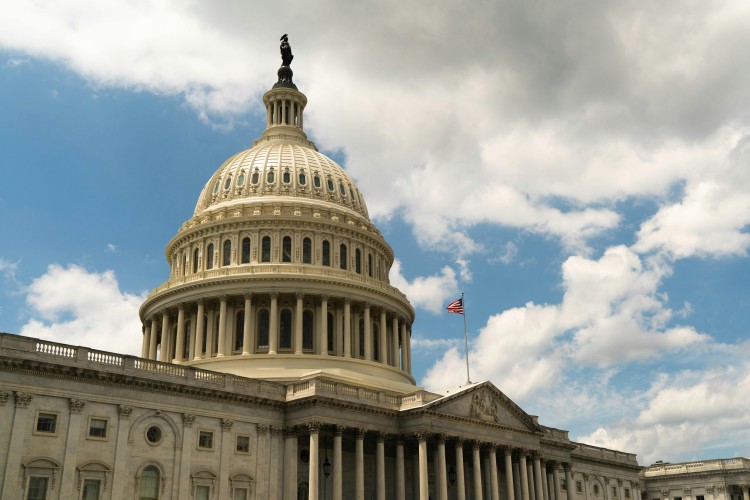Spinnaker Government Relations Blog Post: Congress passes $2.3 trillion package for COVID relief and FY2021 appropriations

Nine months after the last federal relief package, and three months into the 2021 fiscal year, Congress has finally passed another COVID-relief bill and FY21 appropriations in a single sweeping $2.3 trillion package. It is expected that President Trump will sign the legislation immediately.
COVID Relief
The COVID side of the package is approximately $900 billion and contains the following provisions most relevant to Youth Collab member organizations:
- $69B for vaccine distribution, testing and tracing, community health and healthcare provider support -- including $20B for procurement of vaccines and therapeutics, $22B for states’ contact tracing, $4.5B for mental health funding, $9B in support to healthcare providers, $1B for NIH research on COVID, and $1B for the Indian Health Service.
- $25B for rental assistance -- distributed by state and local governments, recipients will be able to utilize this assistance for past due rent, future rent payments, as well as to pay utility and energy bills and prevent shutoffs. $800 million is reserved for Native American housing entities. It also includes an extension of the existing CDC eviction moratorium through January 31, 2021.
- $120B for unemployment insurance -- the bill provides an additional $300 per week for all workers receiving unemployment benefits, through March 14, 2021. This bill also extends the Pandemic Unemployment Assistance (PUA) program, with expanded coverage to the self-employed, gig workers, and others in nontraditional employment, and the Pandemic Emergency Unemployment Compensation (PEUC) program, which provides additional weeks of federally-funded unemployment benefits to individuals who exhaust their regular state benefits. Additionally, the bill increases the maximum number of weeks an individual may claim benefits through regular state unemployment plus the PEUC program, or through the PUA program, to 50 weeks. The bill also provides an extra benefit of $100 per week for certain workers who have both wage and self-employment income but whose base UI benefit calculation doesn’t take their self-employment into account.
- $166B for direct payments to individuals -- the bill contains an additional round of Economic Impact Payments of $600 for individuals making up to $75,000 per year and $1,200 for couples making up to $150,000 per year, as well as a $600 payment for each child dependent.
- $12B for Community Development Financial Institutions (CFDIs) and Minority Depository Institutions (MDIs) -- this funding creates a new Neighborhood Capital Investment program to support CDFIs and MDIs and help low-income and minority communities withstand the economic impact of the COVID-19 pandemic and respond to the economic downturn.
- $284B to renew the Paycheck Protection Program (PPP) -- this includes set-asides for very small businesses and lending through community-based lenders like Community Development Financial Institutions and Minority Depository Institutions.
Congress did not allocate more funding for Emergency Solutions Grants (ESG), as several billion in ESG dollars allocated by the CARES Act in March is still unobligated at HUD.
FY21 Appropriations
Alongside COVID relief, Congress has allocated $1.4 trillion for FY21 discretionary appropriations -- the annual funding that keeps the federal government operating. Relevant appropriations for Youth Collaboratory member organizations include the following:
$136.8M for Runaway and Homeless Youth Programs, a $4.4M increase;
$100M for Youth Mentoring Grants, a $3M increase;
$82M for Youth Homelessness Demonstration Projects, a $2M increase.
In the appropriations process, Congress often provides specific direction to federal agencies regarding how the agencies are to spend the money. Referred to as “report language,” the FY21 appropriations lines of report language instructions that are relevant to Youth Collaboratory members.
Runaway and Homeless Youth (RHY) report language
“The Committee supports the ability of grantees to provide prevention services, such as counseling and case management, regardless of enrollment in residential services. The program is encouraged to notify applicants if grant applications were successful at least 30 days before the grant is to begin, or no less than 30 days before an existing grant is set to end.
The Committee strongly urges the program to ensure that service delivery and staff training comprehensively address the individual strengths and needs of youth, as well as be language appropriate, gender appropriate (interventions that are sensitive to the diverse experiences of male, female, and transgender youth and consistent with the gender identity of participating youth), and culturally sensitive and respectful of the complex social identities of youth (i.e., race, ethnicity, nationality, age, religion/spirituality, gender identity/expression, sexual orientation, socioeconomic status, physical or cognitive ability, language, beliefs, values, behavior patterns, or customs). The Committee strongly believes that no runaway youth or homeless youth should be excluded from participation in, be denied the benefits of, or be subject to discrimination under, any program or activity funded in whole or in part under the Runaway and Homeless Youth Act, based on any of the conditions outlined in this paragraph.”
Youth Homelessness Demonstration Program (YHDP) report language
“The agreement encourages the Department [HUD] to continue to provide guidance to clarify the homeless assistance program requirements; to ensure that sufficient technical assistance resources are available; and to share best practices through a variety of communication strategies while understanding the unique opportunities and challenges for rural communities. The agreement also directs the Department to provide information on successful youth transitional housing models on its website. Additionally, the agreement encourages the use of coordinated entry as a process to ensure that youth experiencing a housing crisis have access to appropriate services and are quickly identified, assessed, referred, and connected to housing and services.”
Youth Mentoring Grants (YMG) report language
“Within the funds provided for Youth Mentoring Grants, $16,500,000 is for helping youth impacted by substance abuse, including opioids and methamphetamine. OJJDP is expected to take all steps necessary to ensure fairness and objectivity in the award of these and future competitive grants. OJP and OJJDP are expected to maintain expanded eligibility for local mentoring programs, particularly in rural areas, unaffiliated with national mentoring organizations. OJP and OJJDP are also expected to collaborate with mentoring stakeholders to expand youth mentoring services in rural areas inordinately affected by substance abuse and that are considered at-risk.”
Youth Collaboratory’s public policy team will continue to digest this massive joint COVID-FY21 approps spending bill in the coming days for additional details on federal programs and instructions. Please check back for additional updates.


